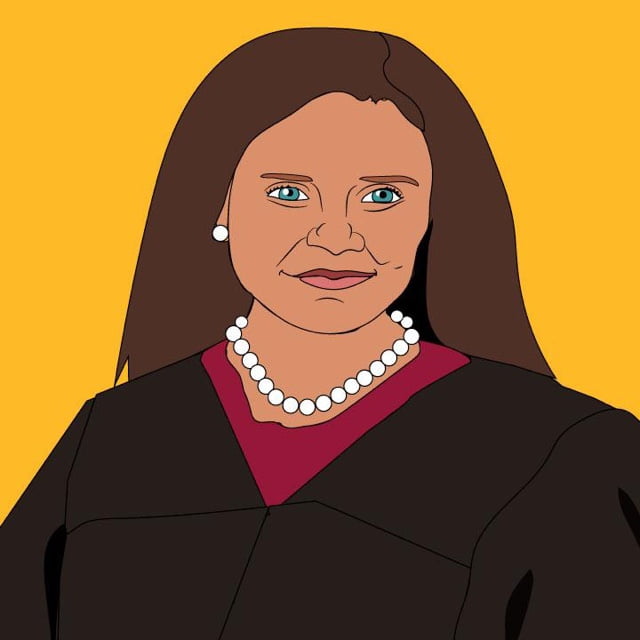By Payton Saso
Just eight days since the passing of Justice Ruth Bader Ginsburg, President Trump has already made his nomination for her replacement. The nominee? Her name is Judge Amy Coney Barrett.
This decision comes days after President Trump and Senator McConnell called for a speedy nomination to secure the seat before the November election, despite Ginsburg’s dying wish as written about last week in 360 MAGAZINE.
This isn’t Trump’s first nomination though, this would be the third Justice he has appointed, but this one seems to be as controversial as his nomination of Brett Kavanough. In 2018, Kavanaugh was nominated and a grueling Supreme Court hearing took place which left the country divided when Dr. Christine Blasey Ford accused then nominee of sexually assaulting her when they were both teens.
Even though Dr. Ford passed a polygraph test, according to USA Today, and testified, Kavanaugh’s nomination was pushed and he is now a sitting Supreme Court Justice. And Trump’s new nomination is not shy of public controversy either.
Judge Barrett, a 48-year-old Notre Dame Law School alumna, has made headlines recently for the obvious but with a special interest in her religious ties.
While religion is not normally a deal breaker when it comes to government officials, since most hold faith in the Christian God and that is what the country was founded on, for Barrett that is what is becoming the headline.
It is important that, regardless of religious beliefs, judges are able to separate their religion and the law when making decisions and that expectation is even higher with Justices who are given their lifetime appointments to dissuade any bias. Barrett even said she was able to do that in her 2017 confirmation hearing for the 7th US Circuit Court of Appeals, which is the seat she holds currently.
However, she was asked when the public was unaware of her ties to People of Praise. This is where the current public concern stems from. According to their website, People of Praise “is a charismatic Christian community. We admire the first Christians who were led by the Holy Spirit to form a community. Those early believers put their lives and their possessions in common, and ‘there were no needy persons among them.'”
While Barrett herself has not publicly claimed she is apart of this ultra-conservative group, CNN reported that Barrett appeared often in the groups magazine “Vine’s and Branches” however, “a number of online versions of the issues that include her appear to have been removed from the website — though it is unclear why that action was taken.”
Being apart or not apart of this group is not what makes Barrett a win for the conservatives, she already has publicly made it aware of her stance on liberal issues. Like when she signed the Letter to Synod Fathers from Catholic Women that stated, “…marriage and family founded on the indissoluble commitment of a man and a woman” and “…the value of human life from conception to natural death.”
In less preachy terms, she supported a letter that said marriage is only between a man and a woman, therefore she does not support same sex marriage, and supported the idea that life begins at conception, so she is a pro-lifer.
There has also been a lot of focus on the fact she undoubtedly supports the pro-life view. She stated in one of her lectures that she “expected that the Supreme Court’s Roe v. Wade decision would be hollowed out, but not reversed,” according to NPR.
Which is not something many want to hear. A majority of people would rather Roe v. Wade be upheld in the Supreme court not “hollowed out.” Since her appointment to the 7th US Circuit Court of Appeals, Barrett has ruled on two abortion cases.
One of the cases was Box v. Planned Parenthood of Indiana and Kentucky Inc. In this case, she voted on whether an Indiana Law that demanded minors to notifiy their parents/guardians in order to receive an abortion was just. Barrett dissented saying that the law shouldn’t have been blocked, according to the ABA Journal.
Judge Amy Coney Barrett’s confirmation will shift the court to a conservative 6-3 vote and it is hard to tell what this means for America, but many speculate much will change. In a time where America is vehemently divided on many social issues, many that sparked from conservitive ideals, this nomination seems like it is only another deterrent to silence the majority. However, Americans have proved over the last few months they will not go quietly and we can expect the deafening sound of their protests to ring strong regardless of the courts constitutional ideals.






